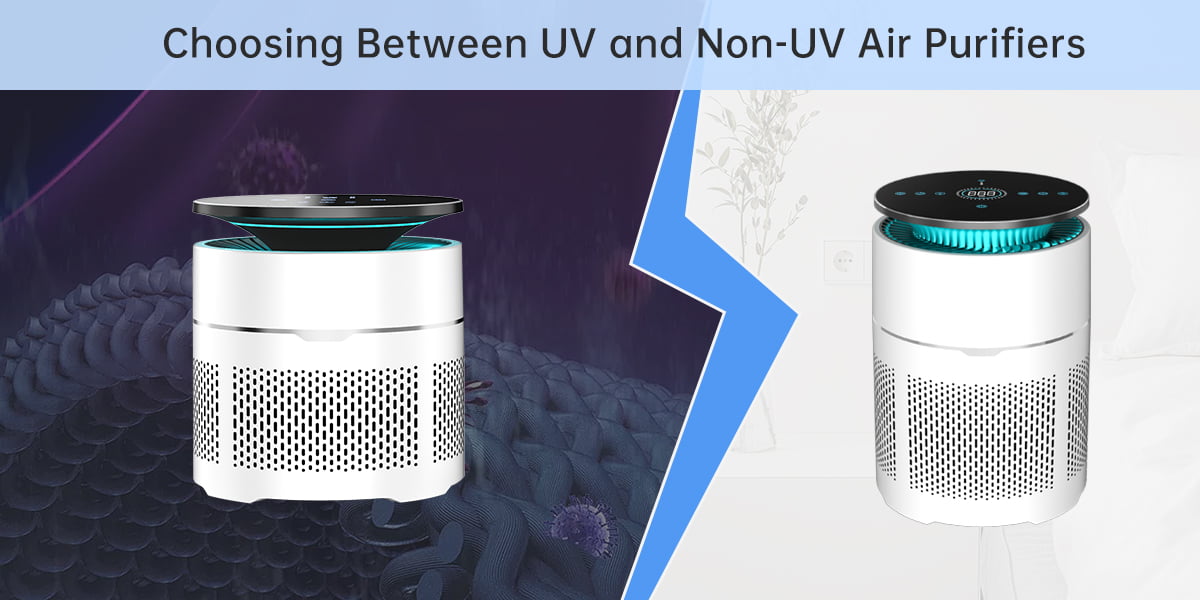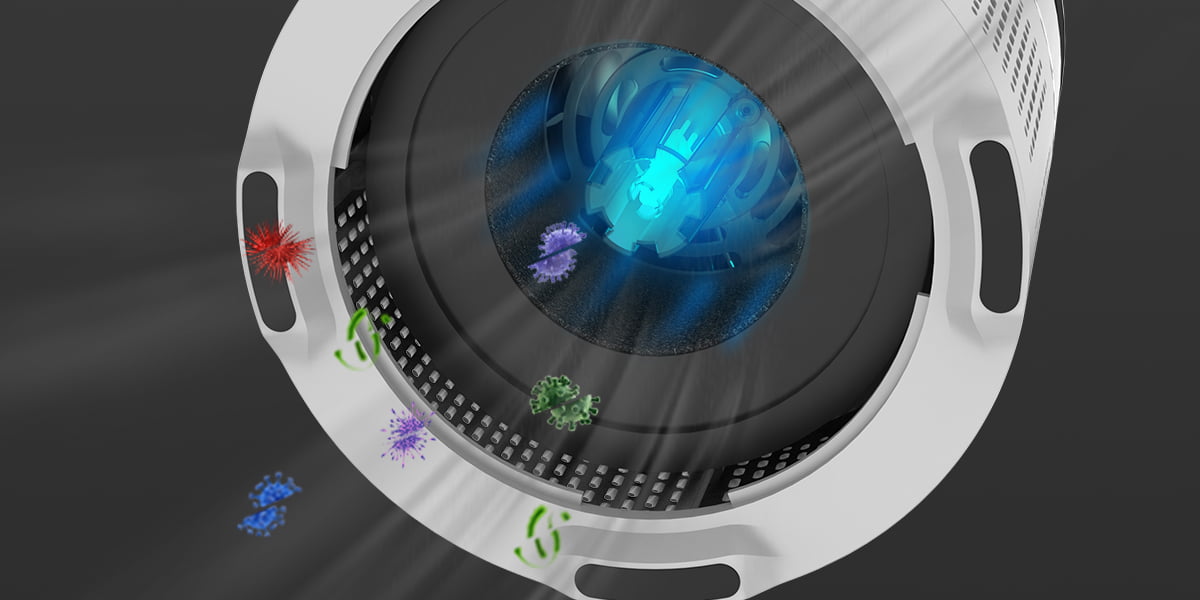Choosing Between UV and Non-UV Air Purifiers
What is UV?
UV stands for ultraviolet, which is a type of electromagnetic radiation that is present in sunlight. UV radiation has a shorter wavelength than visible light, which makes it invisible to the human eye. UV radiation is divided into three categories based on its wavelength: UVA, UVB, and UVC.
UVC radiation has the shortest wavelength of the three and is capable of killing certain types of bacteria, viruses, and other microorganisms. UVC radiation works by damaging the DNA and RNA of these microorganisms, which prevents them from reproducing and ultimately kills them. Because of its ability to kill microorganisms, UVC radiation is sometimes used in air purifiers to help improve indoor air quality. UVC air purifiers use a UVC lamp to irradiate the air as it passes through the purifier, killing any microorganisms that may be present.
It’s important to note that UVC radiation can also be harmful to humans and pets if they are exposed to it for long periods of time. For this reason, UVC air purifiers are designed to be used in unoccupied spaces or in areas where people and pets are not present.

Choosing Between UV and Non-UV Air Purifiers
When it comes to choosing between UV and non-UV air purifiers, there are several factors to consider. Here are some things to keep in mind:
Effectiveness: UV air purifiers are effective at killing certain types of bacteria, viruses, and other microorganisms that may be present in the air. However, non-UV air purifiers can also be effective at removing other types of pollutants, such as dust, pollen, and smoke.
Cost: UV air purifiers tend to be more expensive than non-UV air purifiers. If you’re on a budget, a non-UV air purifier may be a better option.
Maintenance: UV air purifiers require regular maintenance to ensure that the UV bulbs are working properly. Non-UV air purifiers typically require less maintenance.
Safety: UV air purifiers emit UV-C light, which can be harmful to humans and pets if they are exposed to it for long periods of time. Non-UV air purifiers do not pose this risk.
Room size: UV air purifiers are typically designed for smaller rooms, while non-UV air purifiers can be effective in larger spaces.
Personal preference: Some people prefer UV air purifiers because they feel that they provide an extra level of protection against germs and other microorganisms. Others prefer non-UV air purifiers because they don’t emit UV-C light.

Ultimately, the choice between UV and non-UV air purifiers will depend on your specific needs and preferences. Consider the factors listed above to determine which type of air purifier is right for you.



